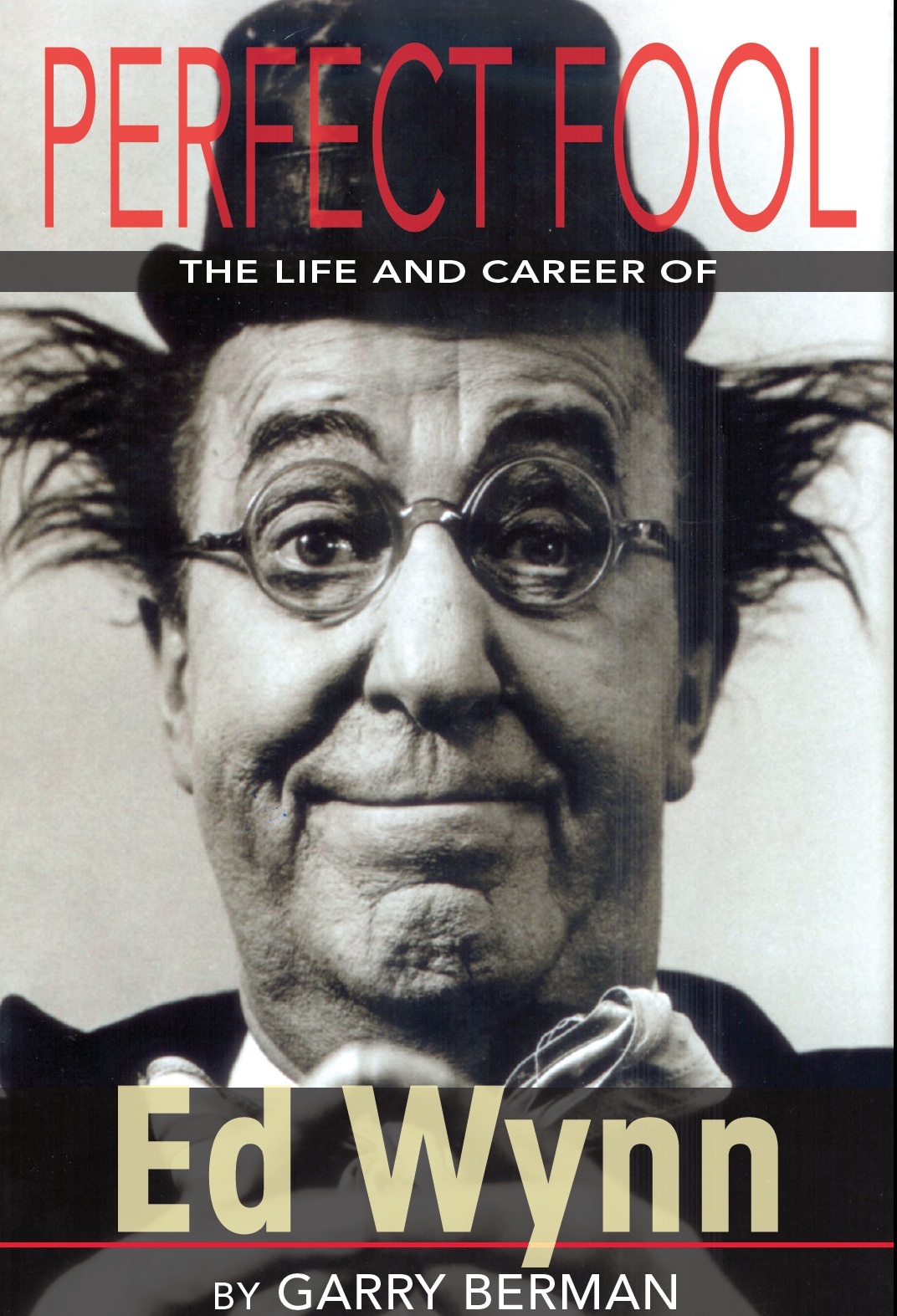Perfect Fool: The Life and Career of Ed Wynn
By Garry Berman

It was Wynn who coined this famous definition of a comedian: "A comedian is not a man who says funny things; a comedian is a man who says things funny." He did both, first as a vaudeville and Ziegfeld Follies comedian, then as the "Perfect Fool" on stage (so named from one of his self-produced revues), as radio's "Fire Chief" (the popular Texaco-sponsored radio program), and an early pioneer on television. In his later years, he became a highly acclaimed dramatic character actor. He attained a level of praise from his comedy peers rarely matched by any other comedian since
Yet for all his impressive achievements in the business, this comedian/actor/director/writer has been too often overlooked in the years since his death in 1966. Hopefully, such an injustice will be corrected by this account of his life and career.
Comedy and the desire to make his audiences laugh was Ed Wynn's obsession, and for that alone he deserves to be remembered in words and pictures for his remarkable career. Perfect Fool is an appreciation of his talents, foresight, and highly regarded ability to make people laugh virtually at will.
What They’ve Said About Perfect Fool:
“Light on pretension, long on facts and anecdotes, Berman provides a sweeping look at one of Hollywood’s most respected, most talented but least remembered superstars….Illustrated with plenty of lively pictures, Perfect Fool: The Life and Career of Ed Wynn shines a light into the musty forgotten crevices of the entertainment business and the result is a solid, entertaining, and detailed biography of a seminal American entertainer. Classic TV lovers will enjoy Berman’s coverage of Wynn’s innovative television productions and will appreciate the breezy tone that makes this book such a satisfying read.” - Billy Ingram, TVparty.com
“Garry Berman’s biography of Ed Wynn is a fine piece of work and a delightful read. It is the fullest account published of the great comedian’s career…and offers a sympathetic representation of the man, underneath the clown make-up and costuming. Its slim size of 215 pages suggested that it wouldn’t add much to the record or to the reputation of one of American’s great clowns. Halfway into chapter one, my hasty assumption proved wrong. Mr. Berman did his research well and wrote his story breezily-without the academic jargon or the extraneous padding that some biographers stuff into their insufficiently-researched and superficially-considered accounts.” - Frank Cullen, Theatre historian
Copyright © 2020 Garry Berman